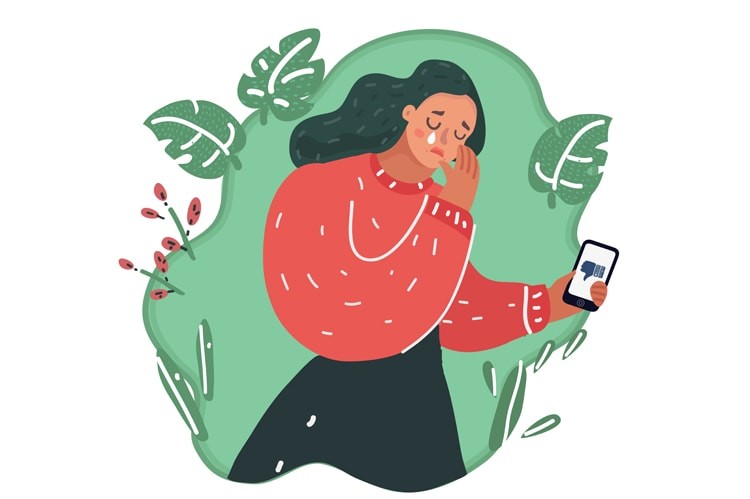Social Media’s Adverse Effect – Body Image Issues

A recent study at York University confirms the correlation between social media and users’ own feelings of dissatisfaction toward their bodies.
For many of us, using social media has become a part of our daily schedules. Whether it’s posting on Instagram, watching people’s Snapchat stories or scrolling through Facebook, it’s something we do without even thinking. It is so ingrained in our lives that it has even become a part of our morning routines — as natural an action as brushing our teeth or getting dressed.
This constant connection to social media does have a downside, as it leads us to compare ourselves to others, looking at the endless array of photographs and posts of people whose lives appear to be better than our own. Social media has the ability to bring us face to face with our ideal lives, but above all, it brings us face to face with the bodies we wish we had.
“People are hardwired to compare themselves socially, that’s something that we all do psychologically, and we call that ‘social comparison’ in psychological theory,” says Jennifer Mills, an associate professor in the Department of Psychology at York University. “In particular, people are motivated to compare themselves in an upward direction, so we look up to people who we see as being superior to us and compare ourselves. Now social media is the perfect vehicle for this because we have infinite images that are accessible at our fingertips.”
Mills started studying body image while she was attending graduate school at the University of Toronto and has continued to do so since she began working at York in 2001. Her recent research has focused on the impact that engaging with social media can have on young women’s body image. “The Effects of Active Social Media Engagement with Peers on Body Image in Young Women” is a recent study conducted by Mills and Jacqueline Hogue, a PhD student in the department’s Clinical Program, which appeared in the journal Body Image and confirms what Mills had hypothesized in regards to social media and body image.
The study had a group of women between the ages of 18 and 27 answer a questionnaire before and after they spent a period of time engaging with social media. One group of women engaged with an attractive acquaintance, while the other group interacted with a family member who was significantly older or younger, which was designed to be the control condition.
“The results were exactly as we had predicted,” says Mills. “When they interacted with the attractive acquaintance on social media they felt worse about their own bodies, and that was measured by giving them a questionnaire before and after the social media task, [where] we picked up on slight fluctuations in their body image as a function of having done that time interacting on Facebook or Instagram.”
Although the mechanics behind it all are still unclear, Mills hopes that with time that will be unravelled as well. “My job as a psychologist is to try to figure out why people do the things that they do, how their personalities, their thoughts and behaviours and emotions, how those interact,” she says. For now, her advice for social media users is to take breaks and disengage should you feel that it’s affecting your mood or body image.
Dr. Jennifer Mills is an associate professor in the Department of Psychology at York University and a registered psychologist with a private practice in Toronto. Her research focuses on body image and eating disorders. Current research interests include the impact of social media on body image, the prevention of disordered eating and the role of motivation in recovery from an eating disorder.
















































































No Comment